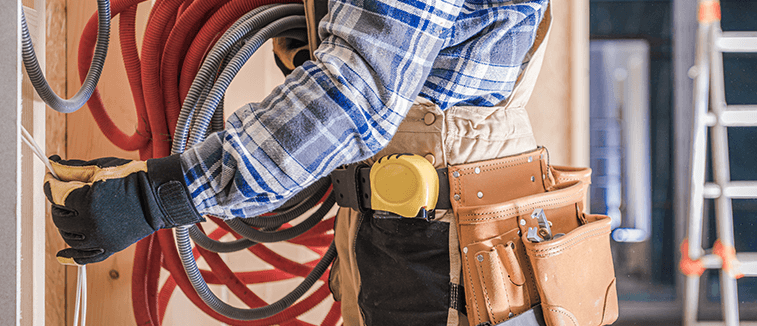Maintenance Electrician
On this page
- What's it like to be a Maintenance Electrician?
- How to become a Maintenance Electrician
- Latest Maintenance Electrician jobs
- Top skills and experience for Maintenance Electricians
What's it like to be a Maintenance Electrician?
Maintenance Electricians are skilled tradesmen who test electrical systems and diagnose problems for repair. They need excellent eyesight to distinguish wiring layouts and the physical capacity to lift heavy loads. Years of experience in an apprenticeship under a Maintenance Electrician Sponsor is ideal for most companies, as these professionals ensure the safety of a building. Maintenance Electricians work in the manufacturing, construction, commercial and industrial sectors.

Tasks and duties
- Inspecting a building’s electrical systems on a routine schedule.
- Conducting maintenance and troubleshooting electrical problems.
- Testing electrical systems with devices such as ohmmeters and voltmeters.
- Analyzing test results and suggesting solutions in a maintenance log.
- Interpreting blueprints and wiring layouts to plan repairs.
- Reporting electrical components that need replacing.
- Recording inventory and repair history of electrical systems.
- Developing preventative maintenance plans.
How to become a Maintenance Electrician
Although a bachelor degree is not a requirement for the role, candidates with a college education are preferred by most companies and only need one year of work experience to qualify for taking the Registered Master Electrician (RME) board examination. Holders of 1 or 2-year vocational courses need two years and three years of work experience, respectively. TESDA vocational courses offer a formal apprenticeship, enterprise-based, and community-based learning to gain the work experience necessary for the job.
- 1.
Graduate from Senior High School in the Technical-Vocational track.
- 2.
Complete the TESDA Electrical Installation and Maintenance NC II Program.
- 3.
Gain practical work experience by pursuing apprenticeships.
- 4.
Consider pursuing tertiary education in Electrical Engineering or Industrial Technology.
- 5.
Apply for the Registered Master Electrician (RME) board examination by the Professional Regulation Commission (PRC).
- 6.
Get promoted to supervisory and management roles.